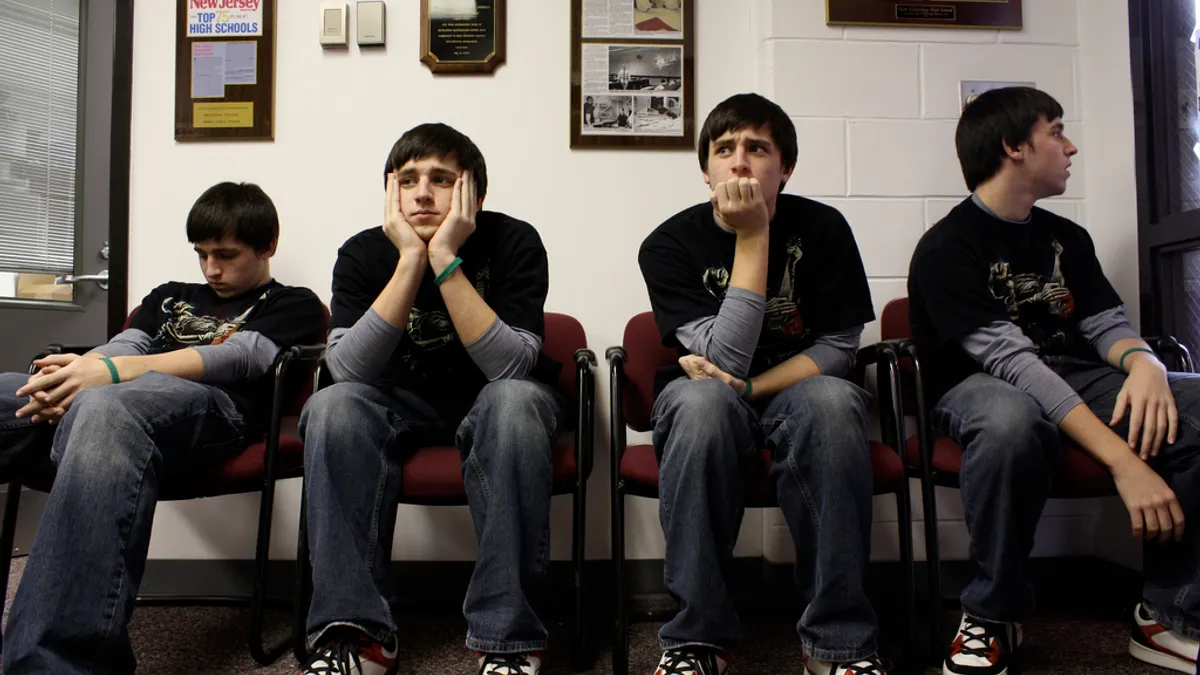Dive Brief:
- Six years in, a ban on willful defiance suspensions in Los Angeles Unified School District has created a more positive school culture at many schools, with a 75% drop in suspensions overall and less racial disparity between the suspensions that did occur, EdSource reports.
- The goal is to keep students in school, so those who are willfully defiant are sent to a counselor rather than being sent home. The policy follows the district’s embrace of the Positive Behavior Intervention and Supports approach, which is intended to nurture a more positive school culture.
- Though the policy aims to do away with defiance suspensions all together, some Los Angeles schools still found it was necessary in 209 instances last year.
Dive Insight:
Eliminating suspensions for willful defiance is a lofty goal requiring planning, counseling staff, community partnerships and staff acceptance. Daniel Barnhart, vice president of secondary schools for the United Teachers Los Angeles, tells EdSource that, following initial skepticism, many educators in LAUSD now appreciate the district’s efforts and believe the initiative has made a difference.
Barnhart said teachers and staff understand there is a connection between suspensions and the school-to-prison pipeline and interventions are needed.
Roosevelt High Dean of Students Javier Cid suggests, however, it’s also important to remember some students are intent on causing trouble, and it’s not fair to others to allow them to continue to disrupt.
Though often proven helpful, restorative justice programs are also often stymied due to lack of funds. For example, Oakland Unified School District in California recently ended its 10-year-old restorative justice program due to budget cuts.
One study on a program implemented in Pittsburgh suggests these practices can reduce the number of days students are suspended, especially in the elementary grades and among African American students. The program, Pursuing Equitable and Restorative Communities, is associated with higher attendance at the elementary level.
Implementing restorative justice starts with robust teacher training. A survey of 29 classrooms showed professional development on these efforts resulted in teachers having stronger relationships with students, which in turn led to fewer disciplinary problems.














